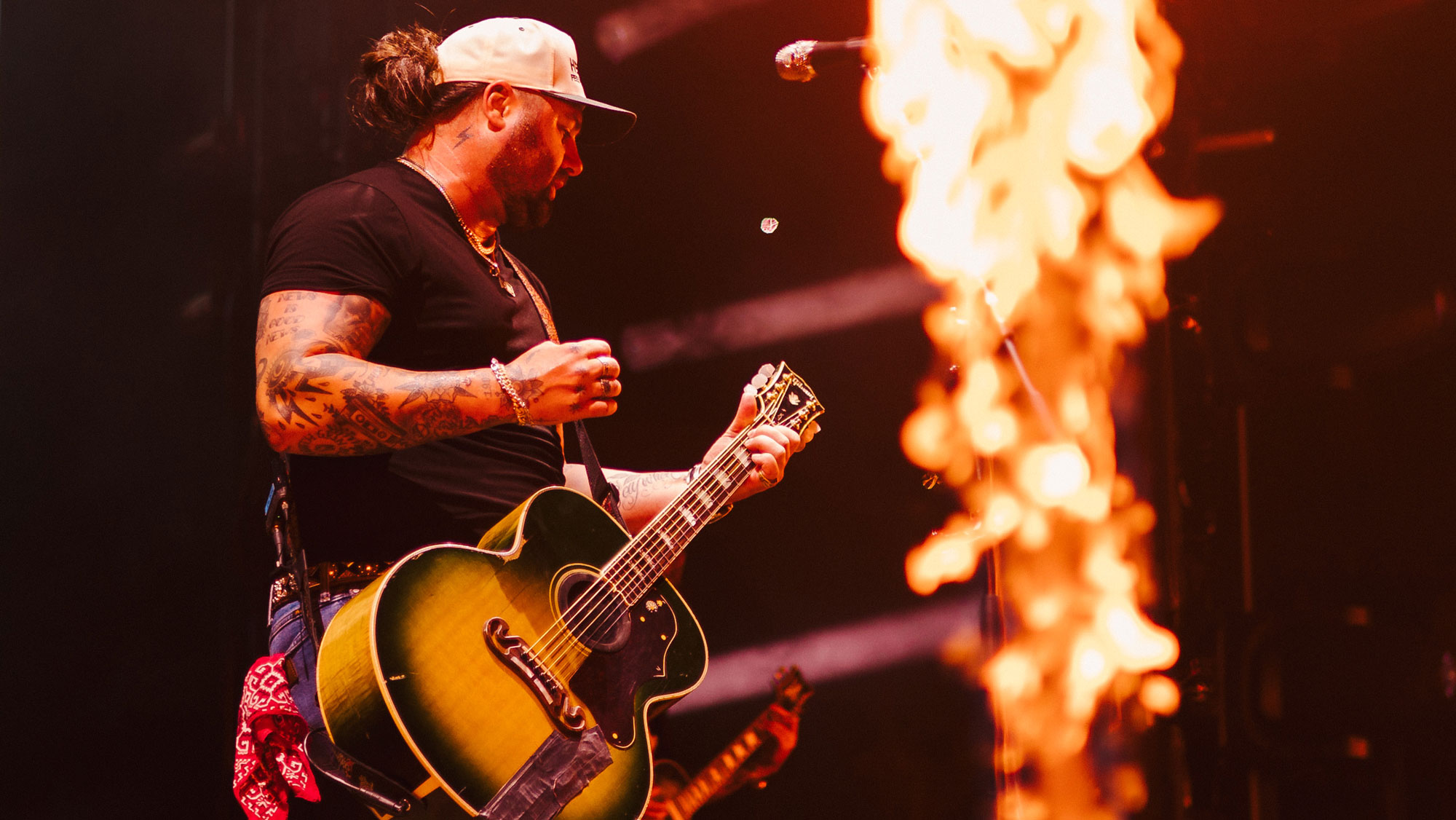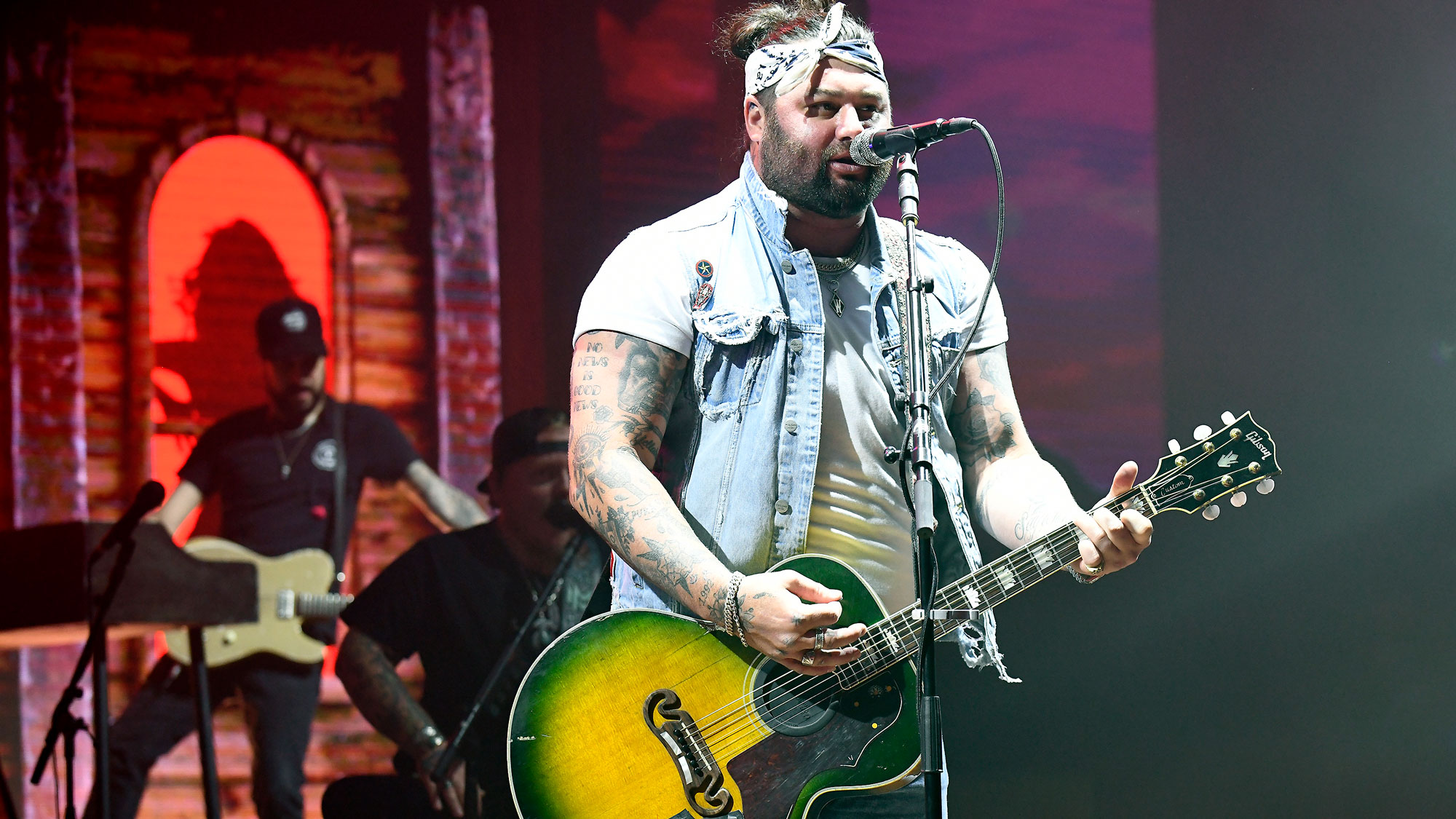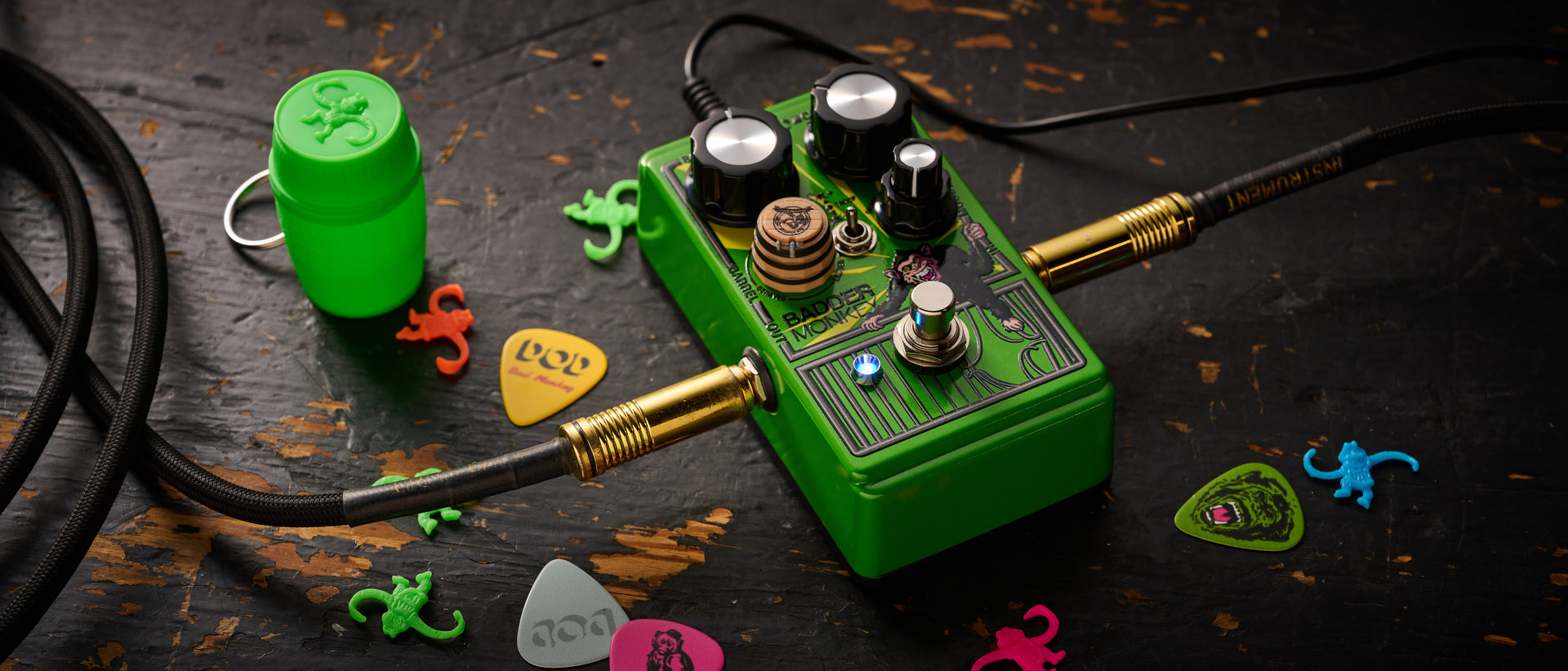“People are responding because of the realness and vulnerability, instead of that persona of a drunk rockstar”: Koe Wetzel abandoned his party animal image to show who he really is on 9 Lives, and found a new reason to play his beat-up Gibson J-200
With the help of his producer, friends and family, the country-rocker is gearing up for the biggest years of his career – and wants to make sure his fans know he’s on their side no matter how difficult their lives get

This article is part of Guitar World's series of interviews and features with artists addressing and raising awareness around themes of mental health, particularly as they relate to musicians.
Koe Wetzel’s new album, 9 Lives, isn’t his first chart success – but it’s his fastest-rising, debuting at No. 15 on the Billboard 200 and reaching Top 5 status on the Country and Americana/Folk Album charts.
He’s no stranger to the charts and packed concert houses, thanks in no small part to his unfiltered honesty. A talented singer/songwriter, and an anarchic performer on and off stage, his exploits are documented in his lyrics about hard living, wild nights, substance use – and the consequences.
But 9 Lives is different. When it was time to write and record, Wetzel found himself at a crossroads, ready to rip the Band-Aids off of some of his internalized wounds. With help from producer Gabe Simon, the lyrics, melodies and hooks that embed his songs into listeners’ heads are still there, along with the usual healthy dose of rebel spirit; but they’re presented with a mature, deliberately introspective approach.
You stated that writing this album was like therapy. How did Gabe Simon help you?
“He was open-minded to everything I had to say. Whenever he asked a question, he wouldn’t just let me spin. He wanted more facts. He opened up every little part. If I didn’t want to talk about it, he was fine with that; but there were certain things I needed to get off my chest, and Gabe made me feel comfortable doing that.”
What took you so long? Stigma? Upbringing?
All the latest guitar news, interviews, lessons, reviews, deals and more, direct to your inbox!
“For sure. I grew up in East Texas and I was raised rough and rowdy – ‘boys don’t cry.’ It wasn’t that I never had anybody to talk to; I did. And it’s not that I don’t have anybody to talk to now; I do. But there are certain things I don’t feel comfortable talking about. So it was pretty much upbringing: take it on the chin and keep on moving.”
Your main guitar is Iggy, a Gibson J-200 Iguana Burst. What makes it right for you?
“I’ve had that guitar for six or seven years. It was unlike anything I’d ever held before. It’s near and dear to me – I think about retiring it and putting it in a glass case in my house. But as broken and beat-up as it is, and how many times it’s been in the workshop getting repaired, it’s one of my best-sounding guitars.
“Every time I talk about retiring it, everybody tells me to shut up and keep it on the stage. It’s a piece of me; every nick, every crack, I remember where I was and how it happened. It’s a memory holder. And she’s so smooth when I play her. She’s my main love; my best girl.
”I love the big, warm sound of the J-200s, and I’m a bigger dude, so they fit my build. I’ve got a J-45 rosewood – my first Gibson – and I call her Misty Rose. I’ve got a couple of Memphis 330s, a 335, a J-45 Roy Smeck that Ray Wylie Hubbard used to record one of his albums. It’s a really cool guitar that I keep in the studio.”
Which guitars did you use on 9 Lives?
“The writing was done on my J-200 and J-45 because I’m comfortable with them. I carry those with me wherever I go. We did most of the writing at Sonic Ranch [Tornillo, Texas]. We used some Martins and 1958 Hummingbirds on the album. Sonic Ranch has a phenomenal guitar collection. Opening those cases, I felt like I opened up the room to all the other artists who’ve written and played on those guitars. It was awesome to pick them up and play.”
You’ve said you had a good childhood. What were those early years like?
“I had a great childhood! It wasn’t the fairytale you see in movies, but it was great. My dad was gone a lot because he worked different jobs, and my mom worked her ass off as well. I was an only child for eight years, so I was alone a lot.
Music has always been there for me. I could be alone with it and express how I felt
“We lived out in the sticks, a long way from town, so I didn’t grow up with a whole lot of friends out there – except for the cousins I’d see every so often. I found ways to cope with being alone and to entertain myself.”
When did music become a refuge?
“Music has always been there for me. I could be alone with it and express how I felt. When you get to your teenage years and really start listening to the lyrics and understanding music a lot more, that’s also when you start having feelings you’re never felt, like your first love; things like that. That’s when I picked up the guitar. I played music my whole life, but I started writing in my early teens. That’s when it became my outlet.
“I’ve definitely been in dark places, and that’s where I do my best writing. Also, writing helps me get out of those places. Having a guitar and being able to put stuff to paper helps me; comforts me. It’s a sense of security, knowing that I’m not alone and I have something nobody can take away from me.”
How do you protect your mental health?
“I’m still that small-town kid from Pittsburg. Whenever I’m off the road, I’m home doing stuff I love. I stay off my phone and off social media as much as possible, because after a day of that my morale is down, I’m pissed off at the world, and I’m like, ‘Why am I doing this to myself?’
“We’ve started leaving the venue as soon as we get off the stage. That’s helped with getting away from the staying up all night, partying until 4 or 5 in the morning and getting carried away.
“I’m not drinking as much. I’m going to the gym, taking care of myself a lot more, and waking up in a better mood. It’s given my mental health a big boost, being clear-minded instead of washing everything down with a bottle of Jack and some painkillers.

“Before, it was always about the party. Now it’s about seeing the bigger picture, keeping my head down, and doing my best. I’m more alive onstage and my voice is a lot better.”
Your image seemed to be at ‘Motley Crue at their worst’ level. Fans get off on it, but the persona is not the person behind it. You’ve changed your persona with 9 Lives – was that a risk?
“I never thought of it as a risk, but I was curious to see how the fans were going to react. I think people are responding because of the realness and vulnerability – me deep-diving into who I am instead of that persona of just being a fucking drunk rockstar.
As a society we don’t deal with death very well, and I’m no different
“It’s definitely a softer side that people aren’t used to hearing. But I think they got exactly what we wanted them to get out of it – learning who I am, and knowing that I’m not this bland dude that only plays one style of music.”
What does that say about the progress we’re making regarding mental health conversations?
“That’s one of the main reasons I’m writing and speaking out the way I have. I’ve gotten messages from people saying, ‘I planned on killing myself, but I found your music and you saved my life.’ That means a lot to me. I don’t think I could live with myself knowing that people are doing that and I’m not speaking out. I guess knowing that is what keeps me writing and wanting to tell the truth.”
Have you ever been in that place?
“I haven’t, but I’ve known people who have, and it’s terrible. Luckily, I have a great support system. My family is awesome, I’ve got great friends, I have people around me who ask how I’m doing. Especially at this stage, I’m always busy and on the road, so the friends and family that check in on me keep me level-headed and let me know I always have somebody to talk to.”
There’s a moment in the Damn Near Normal video where you visit your friend Saul Martinez’s grave. Was it important to share something so raw and private?
“As personal and in-depth as that song is, I wanted people to get the same visual. I didn’t come from a whole lot – me or him, or most of my friends – and I wanted everyone to get a clear-eye view of exactly who I am and where I came from.
“Every time I’m back home I visit his grave, pour out a beer for him, and I sit there and have a conversation with him. As a society we don’t deal with death very well, and I’m no different. Having that scene in the video was a little bit of how I’ve dealt with it.
“I named one of my records after him [2019’s Harold Saul High]; that was another way. All those little pieces are in remembrance of him. He was a great dude and I never want anybody to ever forget about him. I won’t.”
Moving forward, has Gabe Simon opened the gates for your songwriting?
“We’ve talked about making more music. I’ve got a lot more stuff to get off my chest, so shout-out to Gabe for opening up this new side of me. I’m very blessed to have put out a record like this one, and I’m excited for what the future holds. I don’t know what that is yet, but I know there’s a plan for me; so I guess we’ll see in the months coming.
“I’ve got a long way to go and I don’t want to get burned out. We’ve been on the road for 12 years now and we’re coming up on some of the biggest times of my career, so I’m taking it all one second at a time, with a grain of salt, and enjoying everything in front of me.”
- 9 Lives is out now.
Mental health resources
Alison Richter is a seasoned journalist who interviews musicians, producers, engineers, and other industry professionals, and covers mental health issues for GuitarWorld.com. Writing credits include a wide range of publications, including GuitarWorld.com, MusicRadar.com, Bass Player, TNAG Connoisseur, Reverb, Music Industry News, Acoustic, Drummer, Guitar.com, Gearphoria, She Shreds, Guitar Girl, and Collectible Guitar.




